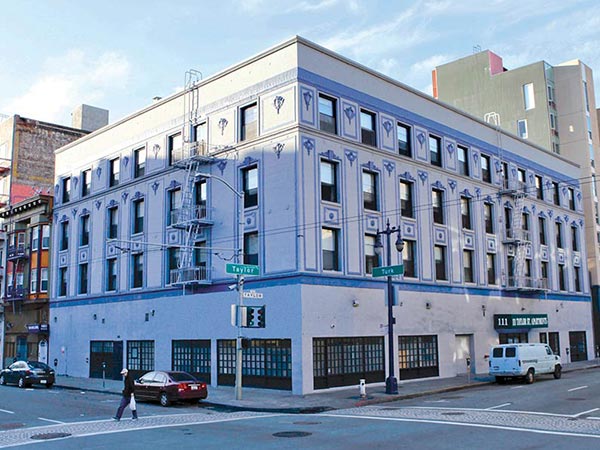Two members of the California Department of Corrections and Rehabilitation parole division and an individual from a nonprofit in San Francisco who helps find work for ex-offenders will be featured workshop presenters at The 44th annual American Probation and Parole Association conference being held in San Francisco, Calif.
Jon Stern M.B.A., Psy.D., Chief Deputy Regional Administrator for CDCR’s Adult Parole Operations Southern Region; Rhoderick Reyes, Parole Agent II, Supervisor; and Artie Gilbert, Program Director at San Francisco’s Bay Area Rapid Transit’s Muni Program for Hunters Point Family; will present “From Lifer to Community Member: Making It Work” on Tuesday, August 20 from 2 p.m. to 3:30 p.m.

The workshop will explore how California’s three-strike and mandatory minimum sentences led to a significant population of inmates serving life sentences. With recent reforms, many of these long-term offenders are being released to community supervision. For inmates returning after long periods of incarceration, GEO Reentry operates the Parolee Service Center in San Francisco – also known as Taylor Street Center for its location in the Tenderloin district – that blends behavior change treatment, including life skills, substance abuse and cognitive behavioral therapy, supported by evidence-based practices. Employment and programs, along with parole oversight successfully reintegrate these individuals into the local community. Called the Long-term Offenders Program, this curriculum includes funding and oversight from the CDCR and a residential reentry center program where participants live and receive treatment and training. The program is very active in local volunteer activities such as working with the city on cleaning events mentoring youth in the inner city. The LTO program is getting positive reviews, including an extremely low recidivism rate of 2 percent.
Workshop participants will learn the unique challenges long-term offenders present; special treatment and training they receive while in transitional housing; and how public, private and nonprofit resources are collaborating to support their needs.

Presenter details include:
- Jon Stern M.B.A., Psy.D., Chief Deputy Regional Administrator for CDCR’s Adult Parole Operations Southern Region, has worked extensively with the ex-offender population, with a focus on community programming. Jon was one of the architects in DAPO’s Peer Re-entry Navigator Networks program, which brings successful Long-Term Offenders to assist newly released ex-offenders back in the community as well as focusing on Lifer Responsivity.
- Rhoderick Reyes, Parole Agent II, Supervisor, brings more than 25 years of experience working in and with government agencies primarily in the corrections industry. Prior to joining the San Francisco Parole Division, he served in the United States Marine Corps, earned his Bachelor of Science in Criminal Justice from Sacramento State University, and worked as a Probation Assistant with the Sacramento County Probation Department, Youth Counselor with the California Youth Authority, and a Juvenile Probation Officer with the San Francisco County Probation Department. He is assigned to the San Francisco Unit #1, Lifer/Long-Term Offender Unit, where he is responsible supervising parolees and agents, operations of the unit.
- Artie Gilbert, program director at San Francisco’s Bay Area Rapid Transit’s Muni Program for Hunters Point Family. Gilbert was released from Solano State Prison in Vacaville after serving 26 years for a first-degree murder sentence. He resided at the Taylor Street Reentry Service Center transitional housing program before starting working with the nonprofit organization Pit Stop, and working his way to his current position.
GEO Reentry has operated the Taylor Street Center for more than two decades. The center offers transitional housing for parolees, including many who are involved with CDCR’s Long-Term Offender program. In addition to delivering evidence-based treatment, counseling and reintegration services to parolees, GEO Reentry staff at Taylor Street are instrumental in establishing beneficial connections to local nonprofits and community-based organizations that help stabilize parolees upon release.
